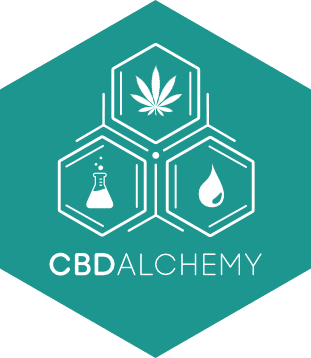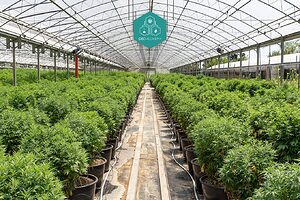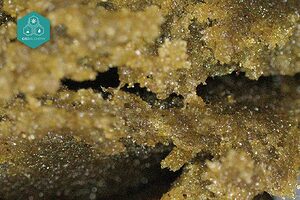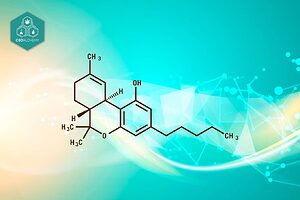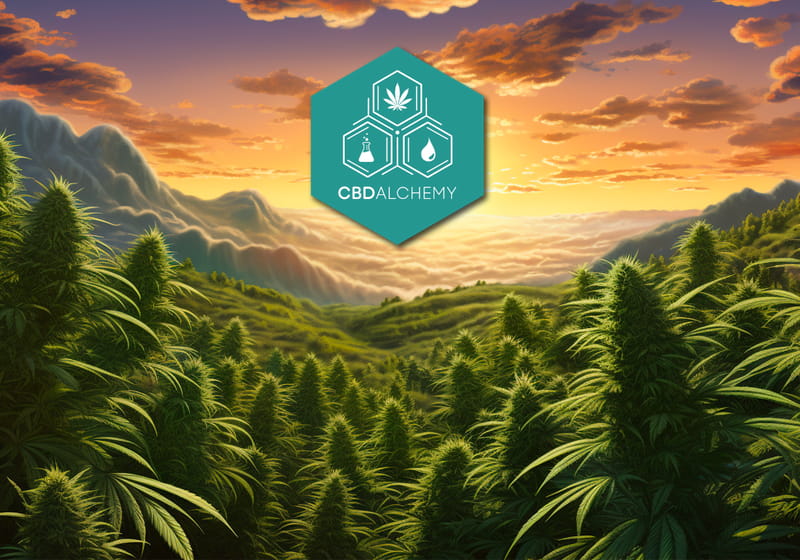- The Endocannabinoid System and CBD
- Differences between CBD and THC
- Legal Situation in Spain
- Scientific and Safety Aspects
- Future Perspectives
- Scientifically Supported Benefits
- Types of Anxiety
- Products and Forms of Administration
- Safety Considerations
- Storage and Preservation
- Conclusions and Recommendations
- The Endocannabinoid System and CBD
- Benefits of CBD for Emotional Well-Being
- Types of CBD Products and Their Effectiveness
- Methods of Administration and Bioavailability
- Detailed Dosage Guide
- Safety and Quality Considerations
- Conclusions and Final Recommendations
- Frequently Asked Questions about CBD and Anxiety
CBD emerges as a promising natural treatment for those seeking to manage anxiety naturally. This compound, extracted from the Cannabis sativa plant, has revolutionized the field of mental wellness thanks to its scientifically proven anxiolytic properties.
Unlike traditional treatments, CBD offers an alternative with fewer side effects and a favorable safety profile. One of the most popular ways to consume CBD for anxiety is CBD oil. The proven efficacy of CBD for anxiety has been supported by numerous studies.
The Endocannabinoid System and CBD
Endocannabinoid System Basics
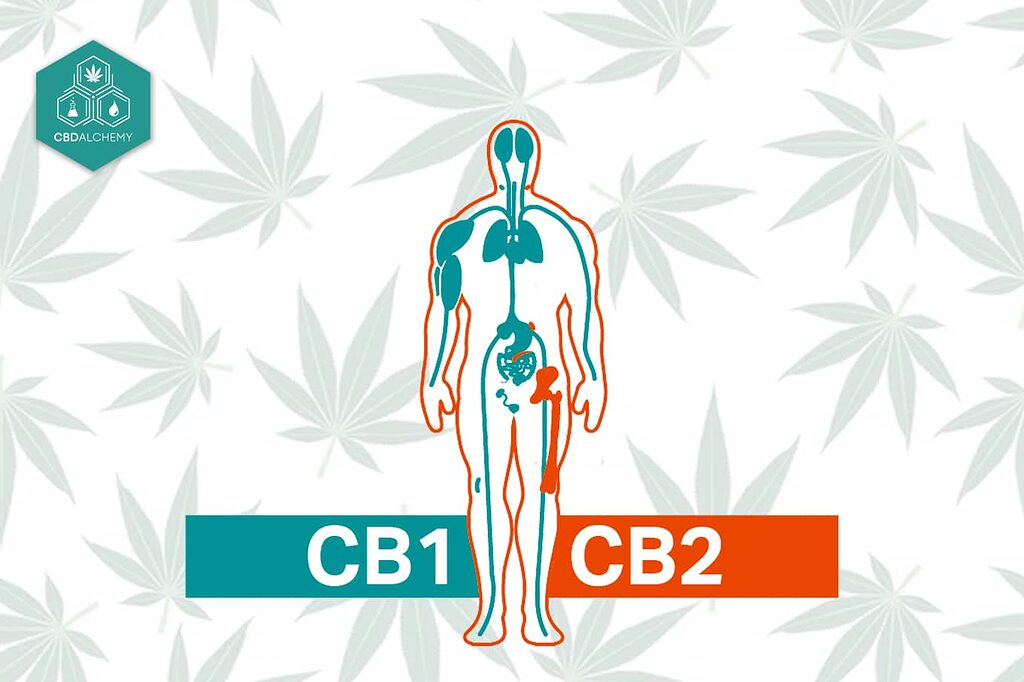
The endocannabinoid system represents a complex network of receptors and neurotransmitters that maintain balance in our body. This system regulates vital functions such as mood, sleep, appetite and stress response. CB1 and CB2 receptors, distributed throughout the body, interact with natural cannabinoids and phytocannabinoids such as CBD.
CBD has been considered an alternative treatment for anxiety.
CBD Mechanism of Action
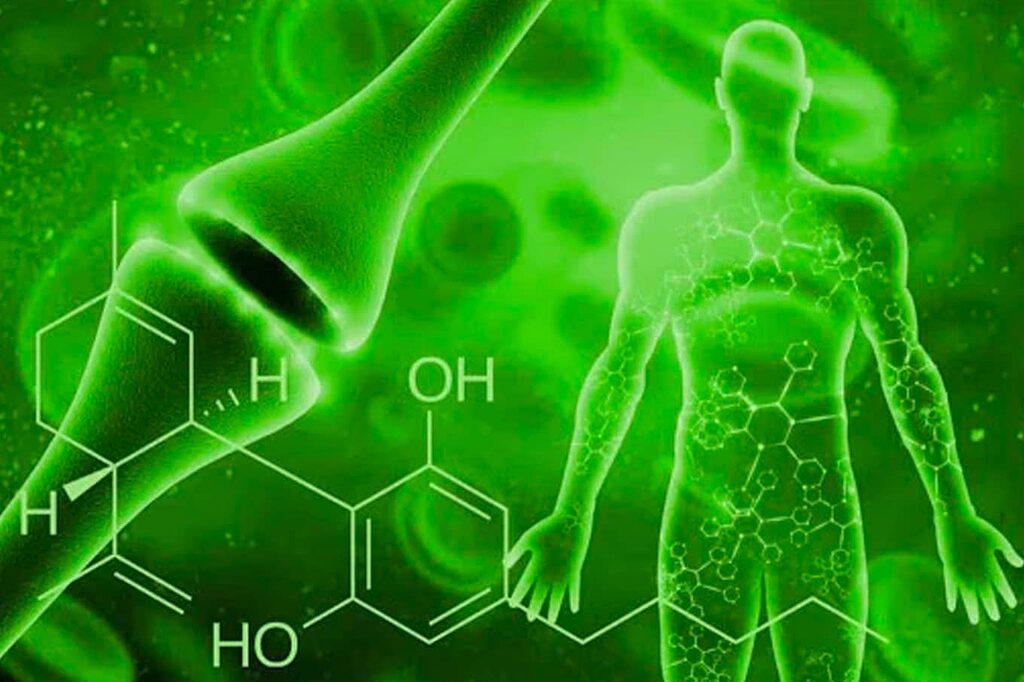
CBD acts as a modulator of the endocannabinoid system, enhancing natural cannabinoid production and regulating receptor activity. This interaction results in a more balanced response to stress and anxiety.
In addition, CBD influences other neurotransmitter systems, including the serotonergic system, which is fundamental in mood regulation, helping to reduce anxiety by interacting with serotonin receptors and providing an anxiolytic effect.
Differences between CBD and THC
Psychoactive Effects
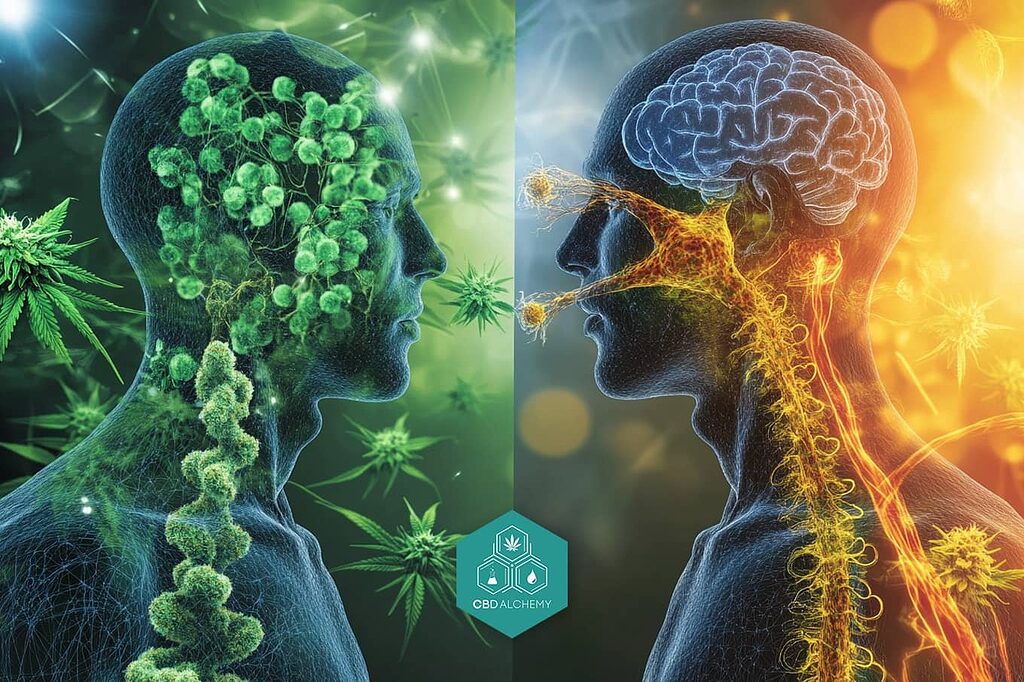
CBD does not produce the psychoactive effects characteristic of THC. This crucial distinction makes it possible to take advantage of the therapeutic benefits without experiencing alterations in perception or mental state. In addition, CBD is non-addictive.
Legal Framework – Historical Decision of the Court of Justice of the EU
The Court of Justice of the European Union (CJEU) established a landmark precedent by ruling that CBD is not a narcotic substance. This landmark judgment, issued on November 19, 2020, transformed the legal landscape for CBD in Europe, ensuring:
– The free circulation of CBD products in the European single market
– The recognition of CBD as a non-psychotropic substance
– The need for scientific evidence for any restrictions
– Protection under EU free trade laws
Legal Situation in Spain
Current Regulatory Framework
Spain is aligned with European regulations, allowing the commercialization of CBD products that comply with:
- Maximum THC content of 0.3%
- Full traceability of the product
- Corresponding quality certifications
- Labeling in accordance with current regulations
Specific Legal Aspects
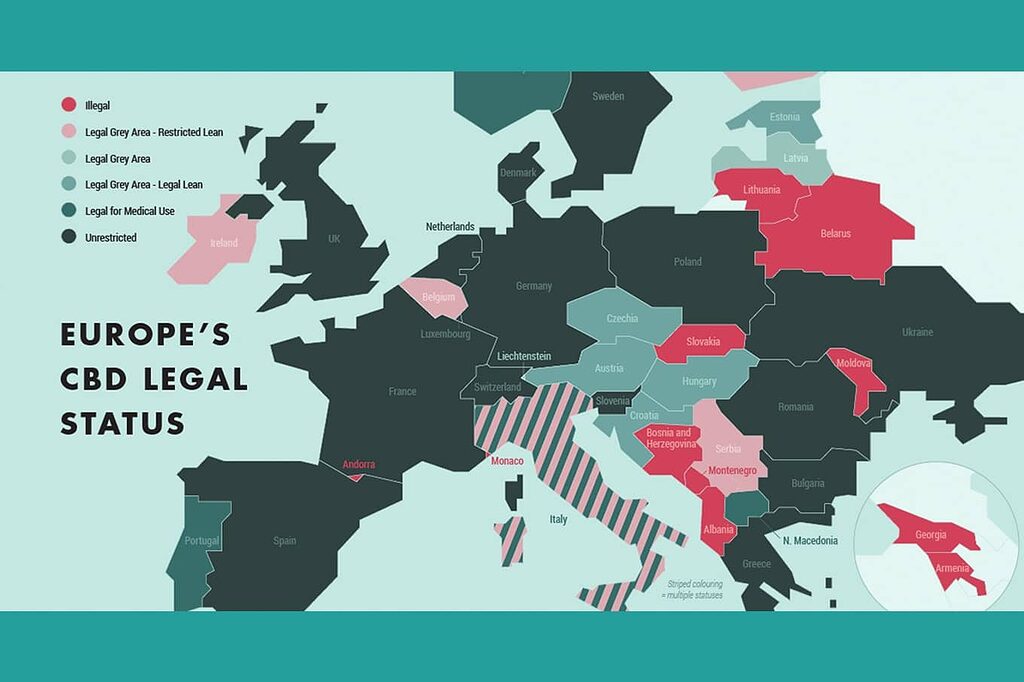
Spanish legislation distinguishes between:
- Topical use: Fully legal for cosmetic and external use products
- Food use: Subject to EFSA Novel Food regulation
- Medicinal use: In process of regulation by AEMPS
European Regulation and Novel Food
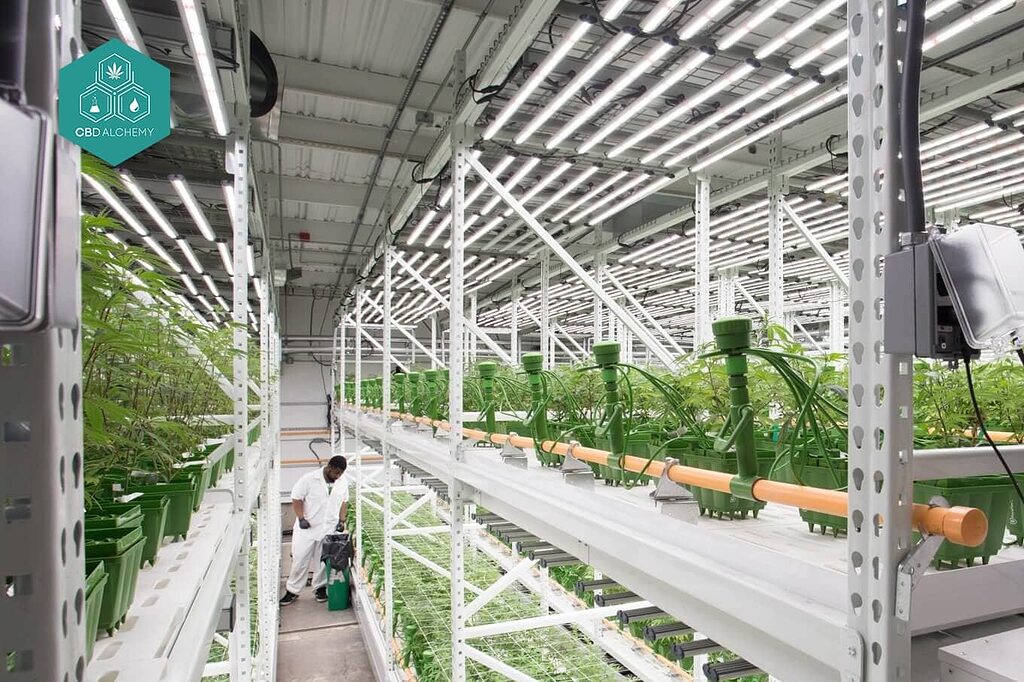
Current Status
The European Food Safety Authority (EFSA) classifies CBD as “Novel Food”, which implies:
- Pre-market authorization required
- Ongoing safety assessment
- Specific quality and traceability requirements
- Approval process pending
Commercial Implications
The CBD market in Europe is undergoing a significant transformation:
- Increased regulatory clarity
- Unified quality standards
- Enhanced consumer protection
- Development of a regulated market
Scientific and Safety Aspects
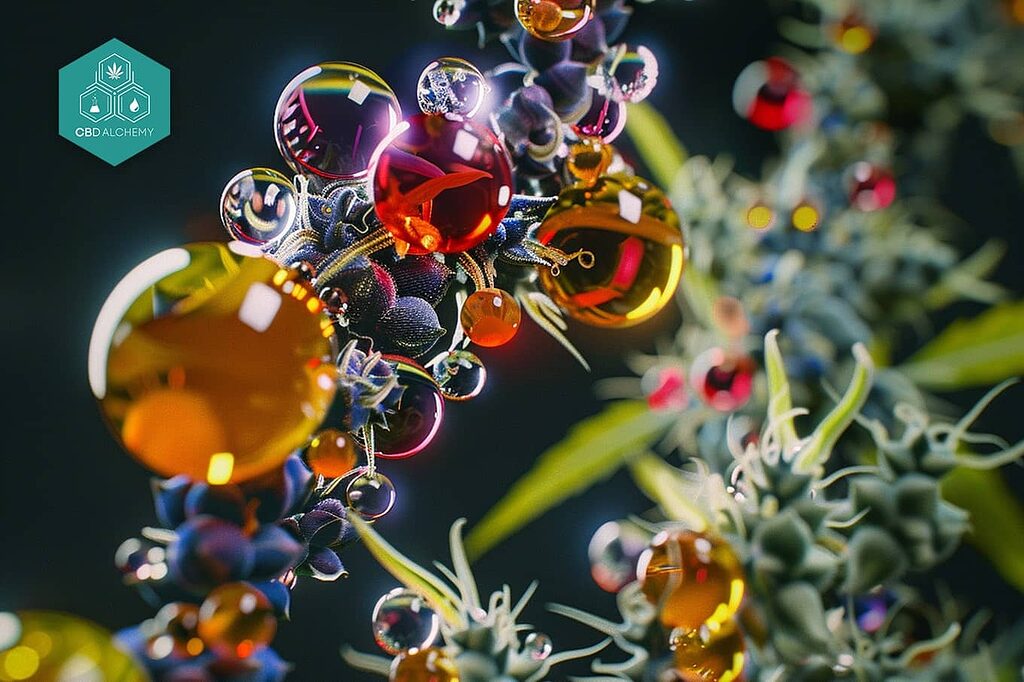
Scientific Evidence
Current research supports the therapeutic effects of CBD:
- Safety of CBD for human use
- Absence of psychoactive effects
- Favorable side effect profile
- Significant therapeutic potential
Quality Considerations
Legal CBD products must comply with:
- Independent laboratory analysis
- Control of cannabinoid content
- Absence of contaminants
- Traceability from cultivation to final product
Future Perspectives
Market Development
The CBD sector in Spain and Europe shows trends towards:
- Increased regulation and standardization
- Increase in scientific research
- Expansion of the regulated market
- Improved consumer protection
Regulatory harmonization
Continued evolution is expected towards:
- Unified legal framework in the EU
- Homogeneous quality standards
- Simplified approval processes
- Greater regulatory clarity
In Spain, CBD derived from industrial hemp is legal as long as it contains less than 0.2% THC. This regulation guarantees access to safe and controlled products.
Scientifically Supported Benefits

Clinical Evidence
Scientific studies have demonstrated the efficacy of CBD on various types of anxiety. Research reveals a significant reduction in anxiety levels in both acute and chronic conditions. Calming effects have also been observed in patients.
In addition, studies have also demonstrated CBD’s efficacy in reducing symptoms of depression, suggesting that it may be an effective alternative to conventional treatments.
Types of Anxiety
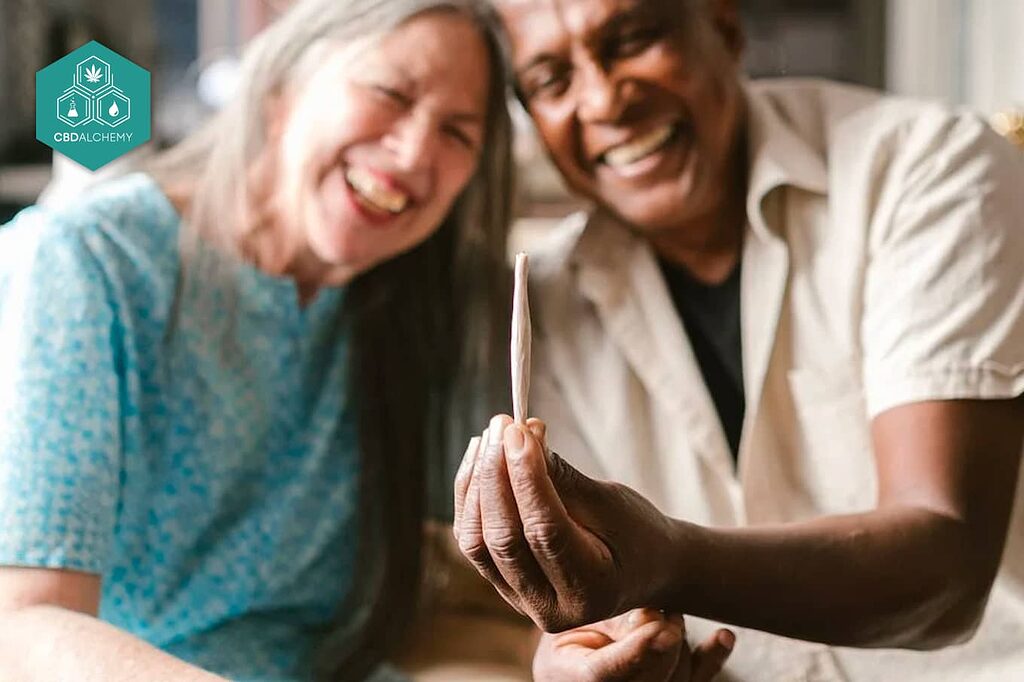
Social Anxiety
CBD has shown promising results in the treatment of social anxiety disorder in people, reducing fear and discomfort in social situations. In addition, positive effects of CBD on social anxiety have been observed.
Generalized Anxiety Disorder
Users with GAD report a decrease in excessive worry and an improved ability to handle daily stress.
Panic Disorder
CBD can help reduce the frequency and intensity of panic attacks, improving the quality of life for sufferers.
Products and Forms of Administration
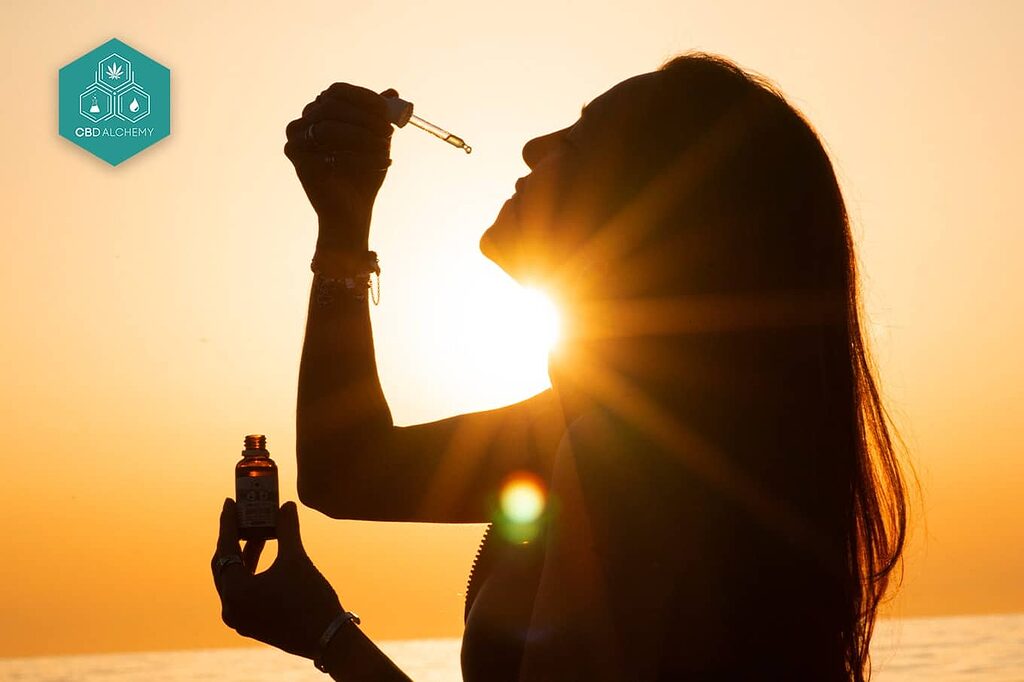
Types of CBD Extracts
Full Spectrum
Full Spectrum extracts contain all the natural compounds of the plant, including other cannabinoids, terpenes and flavonoids. This array creates the “entourage effect,” enhancing the therapeutic benefits.
Broad Spectrum
Similar to Full Spectrum but without THC, ideal for those who wish to completely avoid this compound while maintaining the benefits of the entourage effect.
CBD Isolate
Contains only pure CBD, perfect for users who prefer to avoid other cannabis compounds.
Methods of Administration
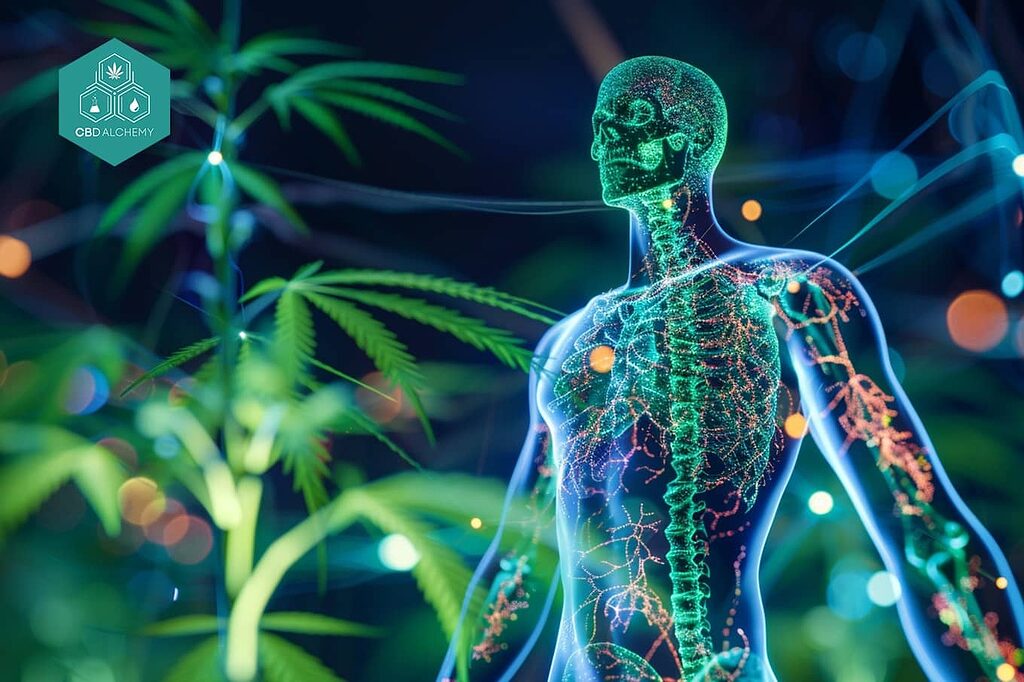
Sublingual Oils
Sublingual application of CBD oil offers rapid absorption and superior bioavailability and is especially beneficial for treating anxiety. The effects are usually noticed within 15-45 minutes and last 4-6 hours.
Capsules and Softgels
They provide precise dosage and convenience of use. Effects take longer to appear but last longer.
Topical Products
Although less common for anxiety, they may complement other methods of administration.
Detailed Dosage Guide
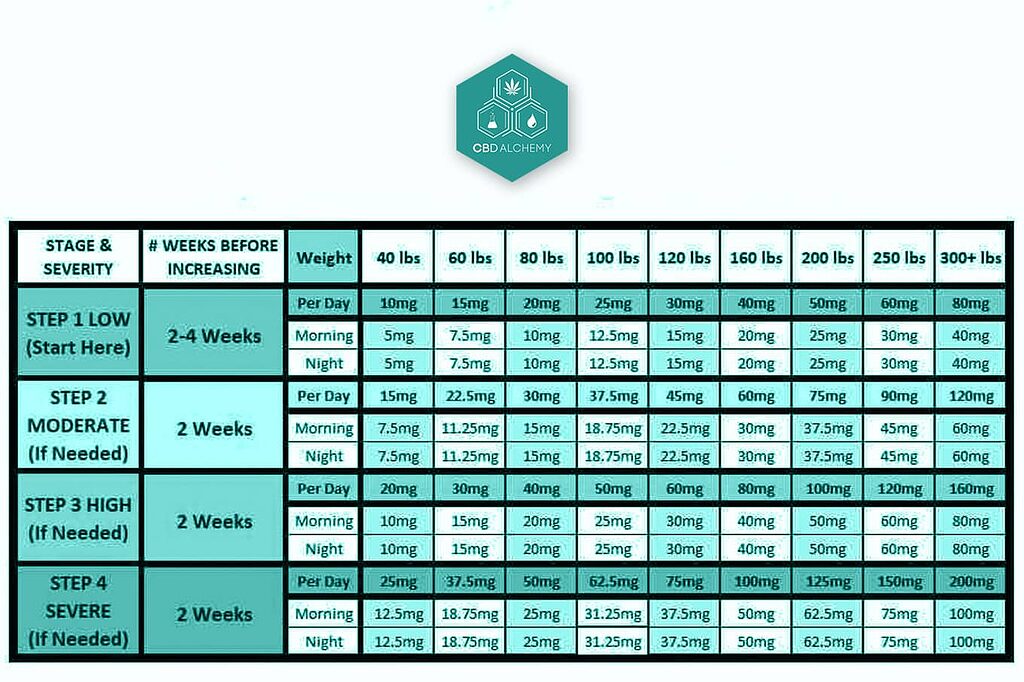
Factors Influencing Dosage
Severity of Symptoms
More severe cases may require higher doses, always increasing gradually.
Individual Metabolism
Response to CBD varies according to each person’s genetics and metabolism.
Dosage Protocol
Start
Start with 15-20mg daily, divided into 2-3 doses.
Adjust
Increase dosage by 5mg every 5-7 days until desired effects are achieved.
Maintenance
Once the effective dose is found, keep it constant and reevaluate periodically.
Safety Considerations
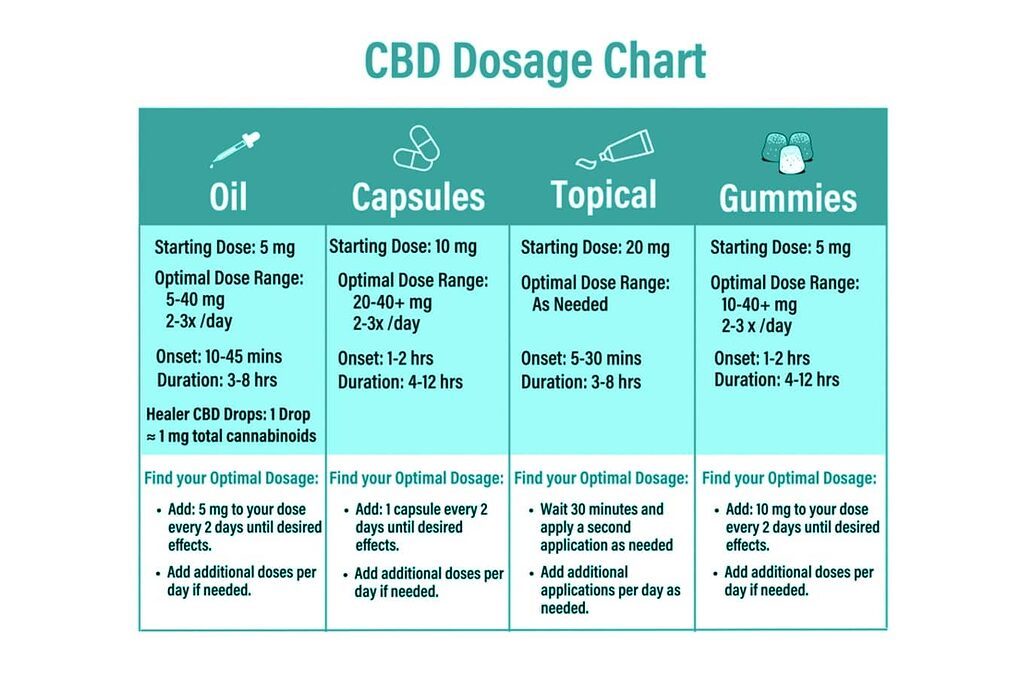
Potential Side Effects
Mild
- Drowsiness
- Appetite changes
- Dry mouth
- Slight dizziness
Moderate
- Gastrointestinal disturbances
- Changes in blood pressure
- Fatigue
Drug Interactions
Medications Metabolized by CYP450
CBD may interfere with the metabolism of certain medications. It is crucial to consult with a healthcare professional before starting treatment.
Anticoagulants
Special caution with medications such as warfarin.
Quality Criteria
- Certificates of analysis available
- Clean extraction methods
- Organic farming
- Product traceability
Quality indicators
- Manufacturer transparency
- User reviews
- Third party certifications
Storage and Preservation
Optimum Conditions
- Keep in a cool, dark place
- Avoid direct sun exposure
- Close tightly after each use
- Respect the expiration date
Conclusions and Recommendations
CBD represents a promising option for the management of anxiety, supported by growing scientific evidence. Its favorable safety profile and the variety of products available allow for a personalized approach to treatment.
Key Points to Remember
Start with low doses and gradually increaseCBD (cannabidiol) e.;merge as a natural alternative for anxiety and stress management.
This compound, extracted from the Cannabis sativa plant, is revolutionizing the field of mental wellness thanks to its calming properties and favorable safety profile.
The Endocannabinoid System and CBD
Biological Basics
The endocannabinoid system represents a complex network of receptors and neurotransmitters that maintain balance in our body. This system regulates vital functions such as:
- Mood and emotional response
- Sleep and rest cycles
- Stress and anxiety levels
- Cognitive processes and memory
CB1 and CB2 receptors, distributed throughout the body, interact with natural cannabinoids and phytocannabinoids such as CBD, directly influencing mental health and overall well-being.
Mechanism of Action
CBD acts as a modulator of the endocannabinoid system, enhancing the production of natural cannabinoids and regulating serotonin receptor activity. This interaction results in:
- Reduced social anxiety
- Improved mood
- Decreased chronic stress
- Regulation of the sleep cycle
Benefits of CBD for Emotional Well-Being
Scientific Evidence
Research shows that CBD can contribute to:
- Reducing anxiety levels
- Improve sleep quality
- Decrease chronic stress
- Balance mood
Areas of Application
CBD shows potential benefits in:
- Generalized Anxiety Disorder (GAD)
- Social anxiety
- Sleep disorders
- Post-traumatic stress
- Keeping a dosage and effects log
- Consult with health professionals
- Choosing certified quality products
- Be consistent with treatment
Types of CBD Products and Their Effectiveness
Full Spectrum Extracts
Full Spectrum products contain all the natural compounds of the cannabis plant, including:
- Multiple cannabinoids
- Natural terpenes
- Beneficial flavonoids
- Traces of THC (<0.2%)The resulting entourage effect enhances the therapeutic benefits of CBD.
Broad Spectrum Extracts
Similar to Full Spectrum but without THC, these products offer:
- Entourage benefits
- Safety for people sensitive to THC
- Guaranteed legal compliance
- Proven efficacy
Methods of Administration and Bioavailability
Sublingual Oils
The most effective method for anxiety, with:
- Rapid absorption (15-45 minutes)
- High bioavailability
- Duration of 4-6 hours
- Precise dosage
Capsules and Softgels
Ideal for constant dosing:
- Prolonged release
- Discreet and convenient
- Pre-measured doses
- Easy to incorporate into daily routine
Detailed Dosage Guide
Factors Influencing Dosage
Optimal dosage depends on:
- Body weight (0.2mg/kg recommended)
- Severity of symptoms
- Individual metabolism
- Type of product used
Starting Protocol
To maximize benefits and minimize side effects:
- Start with 15-20mg daily
- Divide into 2-3 doses
- Increase 5mg every 5-7 days
- Keep record of effects
Safety and Quality Considerations
Selection Criteria
Look for products that offer:
- Independent Certificates of Analysis
- Full traceability
- Clean extraction methods
- Certified organic farming
Proper Storage
To maintain efficacy:
- Store in cool, dark place
- Avoid direct sun exposure
- Keep container tightly closed
- Respect expiration date
Conclusions and Final Recommendations
CBD represents a promising option for the natural management of emotional well-being. To obtain the best results:
- Choose certified quality products
- Start with low doses
- Maintain consistency in use
- Consult with health professionals
- Document personal experience
Successful CBD use depends on finding the right product and dosage for each individual, while always maintaining a responsible and conscientious approach to use.
Frequently Asked Questions about CBD and Anxiety
Basic Information on CBD and Anxiety
What is CBD and how does it help with anxiety?
CBD (cannabidiol) is a natural compound extracted from the Cannabis sativa plant that interacts with the endocannabinoid system. This system regulates vital functions such as mood, stress and anxiety. CBD acts on serotonin receptors and other neurotransmitters, helping to maintain a natural emotional balance.
What is the difference between CBD and THC?
CBD, unlike THC, does not produce psychoactive effects. While THC can cause alterations in perception, CBD offers therapeutic benefits without affecting mental state. This distinction is crucial for those seeking anxiety relief without unwanted side effects.
Is CBD legal in Spain?
CBD is completely legal in Spain as long as:
- It comes from industrial hemp
- Contains less than 0.2% of THC
- Complies with current European regulations
- It has the corresponding quality certifications
Effectiveness and Benefits
How does CBD work to reduce anxiety?
CBD works in multiple ways:
- Modulates serotonin receptors
- Regulates the endocannabinoid system
- Reduces stress response
- Promotes natural relaxation
- Improves sleep quality
What types of anxiety is CBD effective for?
CBD shows benefits in a variety of disorders:
- Generalized Anxiety Disorder (GAD)
- Social anxiety
- Panic disorder
- Obsessive-Compulsive Disorder (OCD)
- Post-traumatic stress
Dosage and Administration
What is the best way to take CBD for anxiety?
The most effective options are:
Sublingual Oil
- Rapid absorption (15-45 minutes)
- High bioavailability
- Precise dosage control
- Long lasting effects (4-6 hours)
Capsules
- Accurate dosage
- Easy to incorporate into routine
- Longer lasting effects
- Discreet and convenient
What dosage of CBD should I take for anxiety?
Starting Dose
- Start with 15-20mg daily
- Divide into 2-3 doses
- Adjust according to body weight (0.2mg/kg)
- Gradually increase as needed
Maintenance Dose
- 20-40mg daily for mild anxiety
- 40-60mg daily for moderate anxiety
- 60-100mg daily for severe cases
Safety and Side Effects
Are there any side effects of CBD?
Common Mild Effects:
- Temporary drowsiness
- Appetite changes
- Dry mouth
- Slight dizziness
Important Considerations
- It does not generate dependence
- Does not produce withdrawal syndrome
- Favorable safety profile
- Well tolerated in general
Can CBD be combined with medications?
It is essential to consult with a health professional, especially if taking:
- Antidepressants
- Anxiolytics
- Anticoagulants
- Medications metabolized by the liver
Product Selection
What type of CBD is best for anxiety?
Full Spectrum
- Contains all cannabinoids
- Enhanced entourage effect
- Maximum effectiveness
- THC < 0.2%
Broad Spectrum
- No THC
- Maintains other cannabinoids
- Partial entourage effect
- Safer option
How to choose a quality CBD product?
Look for products that offer:
- Independent Certificates of Analysis
- Full traceability
- CO2 extraction method
- Certified organic cultivation
- Transparent labeling
Practical Use and Optimization
When is it best to take CBD for anxiety?
For Daily Anxiety
- Morning dose for prevention
- Evening dose for relaxation
- Adjust according to personal routine
For Specific Situations
- 30-60 minutes before social events
- 1-2 hours before bedtime for insomnia
- During episodes of acute anxiety
How to maximize the benefits of CBD?
- Maintain a consistent schedule
- Keep a record of dosage and effects
- Combine with relaxation techniques
- Maintain a healthy lifestyle
- Ensure quality sleep
Special Considerations
Does CBD affect driving ability?
Pure CBD does not significantly affect cognitive or motor skills, but it is recommended:
- Know individual response
- Avoid combining with alcohol
- Use initial caution
- Adjust dosing schedules
How to store CBD products correctly?
- Keep in a cool and dark place
- Avoid direct sun exposure
- Close tightly after each use
- Respect the expiration date
- Keep out of reach of children
This comprehensive guide to CBD and anxiety provides essential information for safe and effective use, allowing users to make informed decisions about their emotional well-being.
